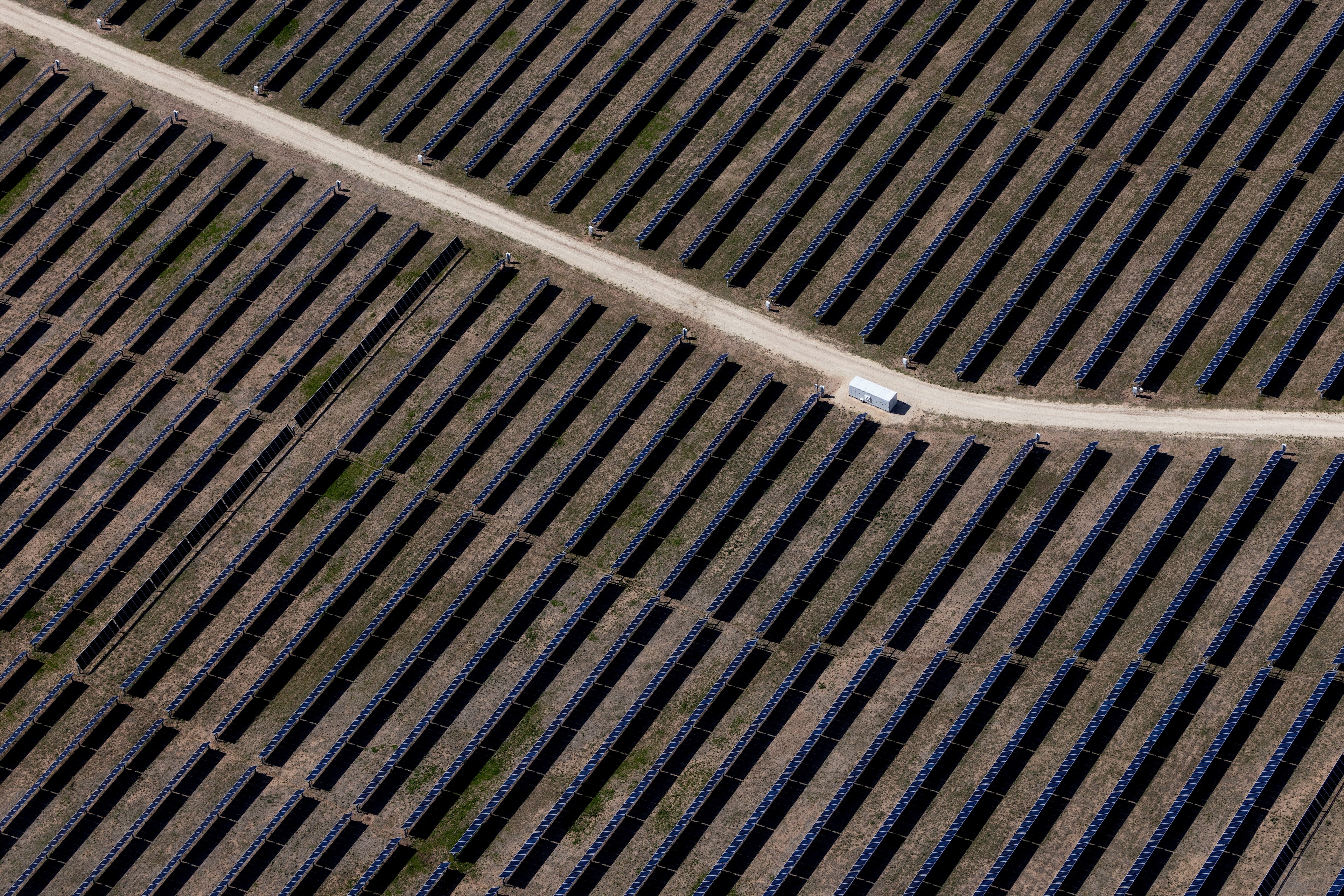Debt-for-nature swaps swell in climate finance response, and other nature and climate news you need to read this week

Top climate change and environment news: Spain's wetlands are disappearing, and more.
Image: REUTERS/Marcelo del Pozo
Listen to the article
- This weekly round-up brings you key nature and climate news from the past week.
- Top nature and climate news: 'Debt-for-nature' swaps in climate finance; Farms, wildlife at risk as Spanish wetland shrinks; India's cost of adapting to climate change could exceed $1 trillion by 2030.
1. 'Debt-for-nature' swaps swell in climate finance response
At least $12 million a year has been freed up to help Ecuador protect the unique ecosystem of the Galapagos Islands with the sealing of the world's largest-ever "debt-for-nature" swap.
The first such deal was struck in 1987 in Bolivia, when Washington-based Conservation International and the private Frank Weeden Foundation bought $650,000 of Bolivia's foreign-held debt in return for a government promise to set aside millions of acres in the Amazon Basin for conservation.
Around 140 have followed as lower-income countries like the Seychelles, Belize, Barbados and Ecuador look to raise funds to help tackle climate change and biodiversity loss.
In the biggest such deal yet, which was around three years in the making, Ecuador sold a blue bond that will siphon at least $12 million a year into conservation of the ecologically rich Galapagos Islands.
Prior to the new issue, Credit Suisse bought three of Ecuador's bonds worth $1.6 billion at a discount of nearly 60%, saving the country about $1 billion in repayments over 17 years.
The funding will help protect the islands, which are home to some 3,000 species – including several found nowhere else – from illegal fishing and climate change, the Pew Bertarelli Ocean Legacy project that supported the deal said.
More than $1 billion of the savings will be used for other purposes of the government's choosing.
2. Farms, wildlife at risk as Spanish wetland shrinks
Scientists say the water needs of the farmers who grow thousands of tonnes of red berries per year are making the problem worse.
The Doñana national park's beautiful lagoons are being depleted by a long drought and hotter weather, and they are surrounded by a sea of greenhouses and a complex system of pipes that takes water from, in some cases illegally, drilled wells.
Last year, Europe experienced its hottest summer on record, compounded by several extreme events including intense heatwaves, drought conditions and extensive wildfires, according to the Copernicus Climate Change Service. Many scientists say droughts are becoming more frequent and water more scarce.
Accept our marketing cookies to access this content.
These cookies are currently disabled in your browser.
A growing global population combined with the impact of climate change is increasing the threat of water stress in many parts of the world, causing per capita water resources to shrink over time.
As the prolonged drought has left the Guadalquivir river basin's reservoirs at a quarter of capacity, water management authorities last month reduced the amount of water available for legal irrigation.
That forced those Doñana farmers who use legally-extracted water to kill part of their crops to save the rest, and they are not too happy about the regional plan to amnesty hundreds of illegally-watered hectares. WWF ecologists estimate that 1,900 hectares of illegal crops in Doñana could be legalized.
3. News in brief: Top nature and climate stories this week
India's cost of adapting to climate change needs could exceed $1 trillion by 2030, according to a report by the country's central bank. Estimates suggest that green financing requirements in India could be at least 2.5% of GDP annually to address the infrastructure gap caused by climate events.
Up to 50% of the global land mass could be in unfamiliar climate zones by the end of the century, according to researchers from George Mason University in Virginia. Climate change could redraw the world's five climate zones, which are based on temperature, precipitation and seasons.
The climate crisis has forced officials to redesign Florida's $21 billion Everglades restoration plan. The original plans to restore the Everglades water infrastructure would leave it to cope with the impact of rising seas, violent storms and increased tourism.
There's more than a 90% chance of the El Niño weather phenomenon persisting through the Northern Hemisphere's winter, says the US National Weather Service's Climate Prediction Center, warming ocean surfaces and fuelling higher global temperatures.
Puerto Rico's coquí frog populations are croaking at a higher pitch as air temperatures warm. The frogs' croaking pitch differs with altitude, due to changes in air temperatures, researchers have found.
4. More on the nature and climate crisis on Agenda
California's Yosemite National Park closed temporarily due to the risk of flooding from rapid melting, as a heatwave followed record snowfalls in parts of Sierra Nevada this winter.
Innovative disaster-risk financing and partnerships are key to mitigating the impacts of climate extremes in Africa. Djibouti has just signed a multi-year, multi-peril insurance deal, setting a precedent for similar partnerships across the African continent.
Hiring a "Chief Heat Officer" to tackle rising temperature extremes is becoming more common. As the first person to hold the position, Jane Gilbert explains what the role entails and why it is increasingly important.
Accept our marketing cookies to access this content.
These cookies are currently disabled in your browser.
Related topics:
More on Nature and BiodiversitySee all
Arunabha Ghosh and Jane Nelson
July 22, 2025
Sebastian Buckup and Beth Bovis
July 10, 2025
Tom Crowfoot
July 8, 2025





